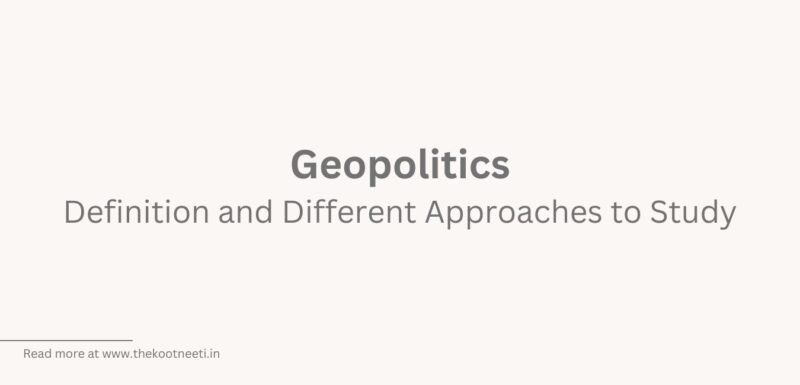Geopolitics: Definition and Different Approaches to Study

Geopolitics is the study of the influence of geographical factors on the international relations and global politics of states. It involves the analysis of the role of geography, including physical and human geography, in shaping the foreign policies and national interests of states.
Geopolitics has a long history, dating back to the ancient Greeks, and has been a central concern in international relations and global politics. It has often been used to understand the distribution of power and influence in the international system, as well as the dynamics of global politics and cooperation.
Geopolitics can be used to analyze a wide range of topics, including the role of geography in shaping international trade and economic relations, the strategic importance of natural resources and geographical features, and the influence of geography on the security and military strategies of states. It can also be used to study the long-term impacts of historical events, such as colonialism and globalization, on the international system.
There are a number of different approaches to the study of geopolitics, including:
- Realist geopolitics: This approach emphasizes the role of power, security, and national interests in shaping international relations and global politics. It suggests that states are motivated by self-interest and that they seek to maximize their power and security in order to protect their national interests.
- Liberal geopolitics: This approach emphasizes the role of international institutions, cooperation, and global governance in shaping international relations and global politics. It suggests that states can work together to address global challenges and to promote international cooperation and stability.
- Marxist geopolitics: This approach emphasizes the role of economic and class relations in shaping international relations and global politics. It suggests that international relations are shaped by the global distribution of economic and political power, and by the struggle between dominant and oppressed classes.
- Cultural geopolitics: This approach emphasizes the role of culture and identity in shaping international relations and global politics. It suggests that cultural differences and identities can shape the foreign policies and national interests of states.
- Environmental geopolitics: This approach emphasizes the role of environmental factors, such as climate change and resource depletion, in shaping international relations and global politics. It suggests that environmental challenges can have significant impacts on the security and prosperity of states.


















